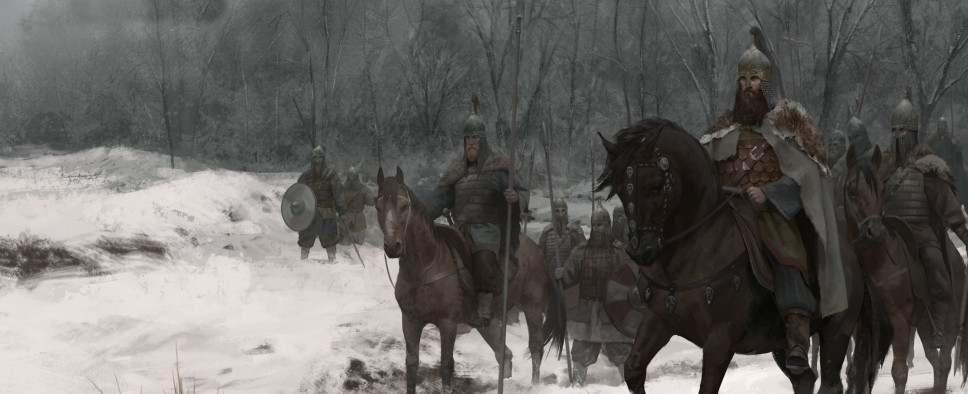Mount & Blade II: Bannerlord Early Access Review - Page 2
-
Category: ReviewsHits: 12057

Article Index
The Good Old Times
Fast forward about a decade. Despite its very well-hidden popularity (as per Wikipedia, the original Mount & Blade managed to sell over 6 million copies by 2015) Mount & Blade didn’t spark a sandbox revolution. Instead it remained one of a kind, with all the potential “inspired-by” games simply made into Warband conversion mods. From Game of Thrones and The Lord of the Rings to even Star Wars, if you own Warband, you can play them all.
And then, after years of waiting, we finally got Bannerlord. The day the game went on sale, it crashed Steam’s payment processing servers and quickly became 2020’s biggest launch so far. As such, you may be wondering, was it worth the wait?
A very simplistic way of looking at Bannerlord would be to say that it’s just prettier Warband with more bugs. On some vary basic level, this might even be true. The game clearly looks better, and due to it having just entered early access, you will encounter quite a few bugs while playing it.
However, once you dig a little deeper, you will inevitably notice plenty of new features and overhauled systems. Like for example greatly expanded siege mechanics, a deeper world simulation, improved unit recruitment and brand-new clan and persuasion systems. At the same time, due to Bannerlord’s early access nature, not all of the planned features are currently implemented and those that are, usually have at least some limitations to them.
My theory here is that instead of including everything they had in mind in the initial version and then panicking as it all broke horribly once thousands of people started playing the game, the developers released Bannerlord with the bare minimum of new stuff to see how it would work and then go from there.
Seeing how TaleWorlds’ earlier experience with early access was a resounding success, and going by the already available patches, I have no reason to believe that they wouldn’t fix the current issues and then add even more stuff further down the road. Still, with the current setup I can’t really see the game becoming fundamentally different from its predecessors. While it’s sure to get bigger and more robust as the early access phase progresses, I highly doubt that at any point we’ll be able to build our own death trap castles like in Stronghold, or progress through different ages like in Age of Empires.
For now, though, the game is definitely playable and quite fun, but at the same time a lot of the stuff in it doesn’t work right, or doesn’t work at all. Take the game’s perks. You get them upon reaching certain skill thresholds, but right now most of them are either pathetic to the point of being entirely useless, or don’t do anything at all.
The same can be said about the majority of the game’s features. Sure, the core loop is already enjoyable to the point where you get that “just one more turn” feeling despite this not being a turn-based game, and you can clearly see a lot of potential, but it will still be a while before we’ll see Bannerlord in all its eventual glory.
This creates a somewhat odd situation where the game manages to combine plenty of new content and fresh ideas with a surprising lack of stuff one might expect after playing the earlier Mount & Blade games. As a result, we have dynamic seasons, ridable camels, and some light city-building mechanics, but at the same time there are no feasts and we can’t use training fields to upgrade our soldiers.
Now, moving past all the maybes and what ifs, let’s see what the game currently has to offer. It still takes place in Calradia with all the European influences that entails, but a few hundred years earlier, with strong parallels to the fall of Rome and all the subsequent squabbling of its successors.
The overworld map is roughly the same but bigger and the factions occupying it are similar to their Warband counterparts, but they’re just different enough to be their own thing. In fact, the developers even bothered to slightly change the spellings of all the city names to reflect this different time period. So, for example instead of Warband’s city of Uxkhal, you have the Ocs Hall in Bannerlord.


